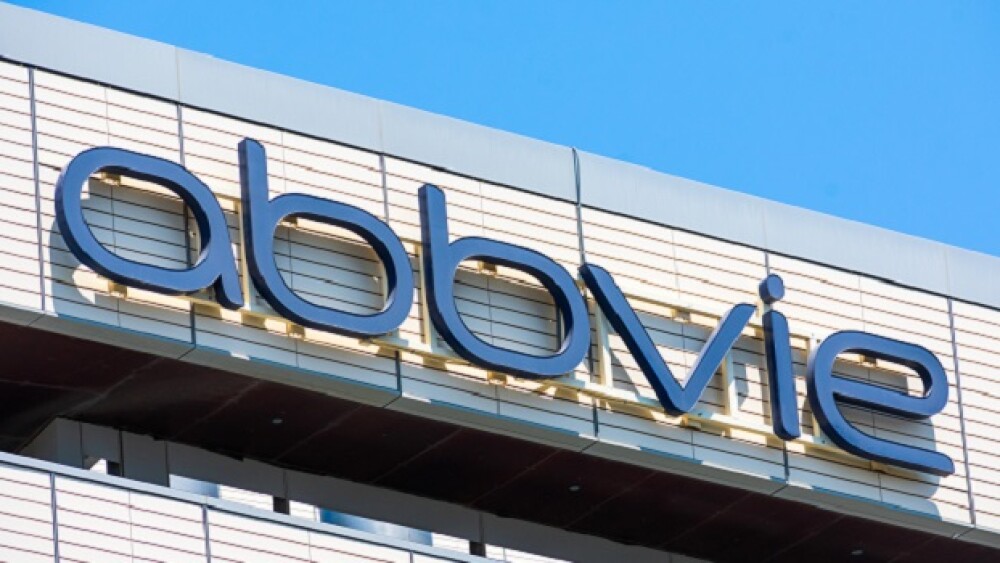Crohn’s disease is Rinvoq’s seventh approved indication and could potentially help AbbVie weather declining sales for its blockbuster biologic Humira.
Pictured: A blue AbbVie sign on building/courtesy of Michael Vi/Adobe Stock
The FDA has approved AbbVie’s Rinvoq (upadacitinib) for the treatment of moderate to severely active Crohn’s disease in adult patients, the company announced Thursday.
The additional approval, Rinvoq’s seventh overall, applies to Crohn’s disease (CD) patients who are intolerant to or had previously shown inadequate treatment response to one or more tumor necrosis factor (TNF) blockers. Rinvoq is the first oral drug indicated for CD, according to the FDA’s announcement of its approval.
Data from three trials supported the FDA’s regulatory greenlight: the induction studies U-EXCEED and U-EXCEL, and the maintenance study U-ENDURE. Rinvoq met its primary and key secondary endpoints with its 45-mg dose in the two induction studies, and with its 15-mg and 30-mg doses in the maintenance study.
In U-EXCEED and U-EXCEL, from 35% to 46% of Rinvoq-treated patients achieved endoscopic response after 12 weeks of treatment, as compared with only 3% to 13% of placebo comparators. In U-ENDURE, 28% and 41% of patients treated with the 15-mg and 30-mg dose showed endoscopic response at week 52, relative to only 7% in the placebo group.
Rinvoq likewise led to significantly better clinical remission rates, which ranged from 36% to 46% in the two induction studies and 18% to 23% in the maintenance study.
Data from these studies suggest that Rinvoq leads to “early and long-term symptom relief,” Edward Loftus, AbbVie advisor/consultant and U-EXCEL study investigator, said in a statement, adding that the drug could also improve intestinal damage due to inflammation in CD.
CD is the seventh approval for Rinvoq, which notched its first FDA win in August 2019 for severe rheumatoid arthritis. The second came in December 2021, when the drug picked up active psoriatic arthritis as an indication.
Rinvoq was then approved for refractory, moderate to severe atopic dermatitis a month later, moderately to severely active ulcerative colitis in March 2022 and active ankylosing spondylitis in April 2022. Its sixth approval also came in 2022, when Rinvoq added non-radiographic axial spondyloarthritis to its label in October.
AbbVie’s strong Rinvoq push comes as the company weathers declining sales for its blockbuster biologic Humira (adalimumab). In its fourth-quarter and full-year 2022 financial report, the company indicated that international sales for its rheumatoid arthritis treatment dropped 22% last year, due in large part to increasing biosimilar pressure.
By the end of 2022, AbbVie projected its U.S. Humira sales to drop further by 37%. During its first-quarter earnings report this year, the company posted 25% lower global revenues.
Amgen’s Amjevita became the first Humira biosimilar to hit the U.S. market in January 2023, and several others will follow suit by mid-2023.
Tristan Manalac is an independent science writer based in metro Manila, Philippines. He can be reached at tristan@tristanmanalac.com or tristan.manalac@biospace.com.






